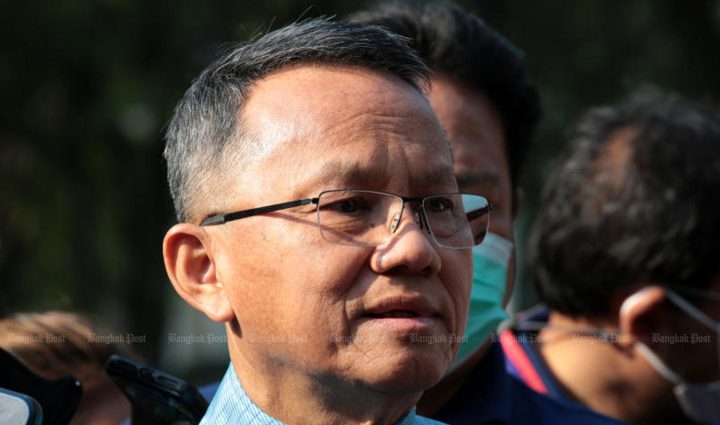Minister says full enforcement could backfire if equipment and training are lacking

Justice Minister Somsak Thepsutin on Thursday defended the delayed enforcement of four key provisions in the law against torture and enforced disappearances, saying enforcing it in its entirety would backfire without proper equipment and training.
The minister was responding to a question from the opposition after the cabinet issued a decree postponing the enforcement of Sections 22-25 until Oct 1 due to a lack of funds to buy equipment, especially police body cameras, and a shortage of skills.
According to Mr Somsak, the Royal Thai Police (RTP) had sought to postpone enforcement without specifying a timeframe, but the government decided that a period of seven months should suffice.
“If we don’t postpone, it may backfire. The collection of evidence may be incomplete and legal proceedings may be disputed. Authorities may be at risk of disciplinary and criminal actions,” the minister said.
“So, these four sections have to be postponed. The Justice Ministry doesn’t agree with the postponement, but it is necessary.”
The sections involve measures to prevent abuse and harassment and to keep the authorities’ use of power in check, such as requiring police to use body cameras during a search and arrest, and giving a detailed report of an arrest to local officials and prosecutors.
Mr Somsak insisted the government was not trying to find an excuse not to address problems of abuses and ill-treatment by state authorities, adding that a budget was approved to fund the procurement of equipment.
He also said the executive decree postponing the enforcement of the four provisions will be forwarded to the House of Representatives as required by the charter.
Meanwhile, Attorney-General Naree Thanthasathian has ordered the setting up of anti-torture and enforced disappearance centres nationwide following the enactment of the Prevention and Suppression of Torture and Enforced Disappearance Act.
The law, published in the Royal Gazette on Oct 25 last year, took effect on Wednesday except for the four provisions — 14 years after it was first proposed by local human rights campaigners.
Kosolwat Inthuchanyong, deputy spokesman for the Office of the Attorney-General, said the 113 centres would receive complaints about any misconduct for investigation.
“Except for those four provisions, the law is in effect and public prosecutors have an obligation to enforce the law to protect the people,” Mr Kosolwat said.

